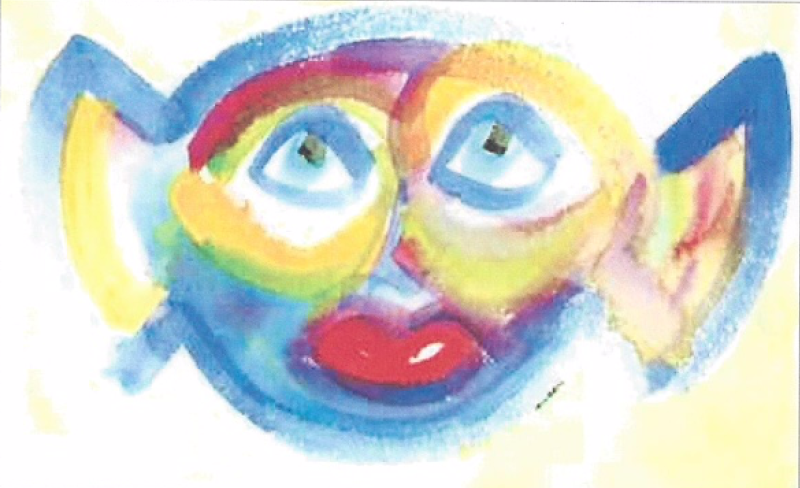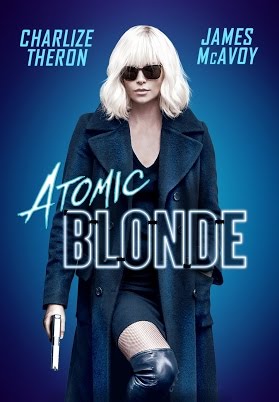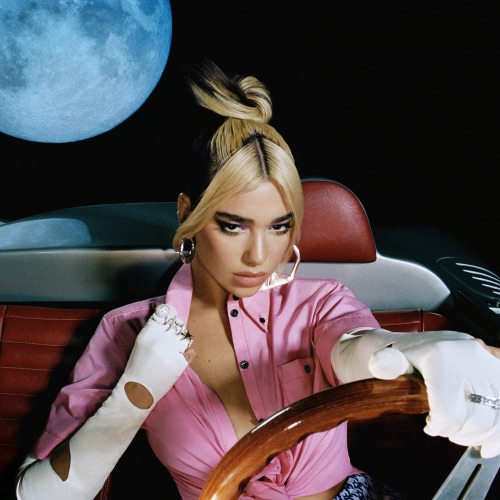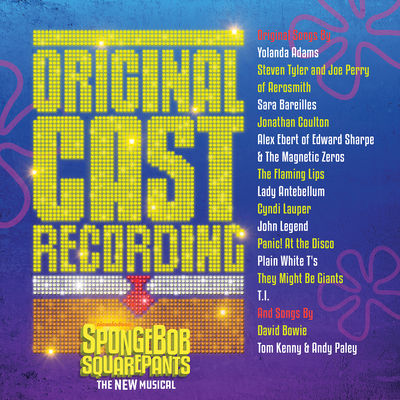'IS GOD IS’ – MOM AS A VENGEFUL GOD
 Friday, June 1, 2018 at 3:39PM
Friday, June 1, 2018 at 3:39PM
 Alfie Fuller and Dame-Jasmine Hughes (Photo credit: Julieta Cervantes)
Alfie Fuller and Dame-Jasmine Hughes (Photo credit: Julieta Cervantes)
HENRY EDWARDS - New York - April 1, 2018
Has the desire for vengeance always been with us?
Theatre history says yes. Cast your eyes all the way back to late 6th century BCE and you’ll find Aeschylus, Sophocles and Euripides dramatizing how unrelenting violence ravages the hell hole known as the House of Atreus.
Kick the can forward to 1600 and you’ll discover William Shakespeare scribbling “Hamlet,” undoubtedly the most iconic play about revenge ever written.
These days we have Quentin Tarantino and Martin McDonagh, for whom the law of retaliation (commonly known as an eye for an eye) is as customary as breathing and eating.
Add to their ranks, Aleshea Harris, whose shamelessly outrageous “Is God Is,” skillfully directed by Taibi Magar (“Underground Railroad Game”), inaugurates the newly renovated Soho Rep Theater.
Harris’s effort is the recepient of the American Playwriting Foundation’s 2016 Relentless Award. The writer received the largest annual cash prize in American theater in recognition of a play yet to be produced.
Harris characterizes her play as a mash-up of "the ancient, the modern, the tragic, the Spaghetti Western, hip-hop and Afropunk.”
Playing by her own one-of-a-kind rules, she launches her play with a clip from a scary episode of the TV cartoon series “Scooby-Doo, Where Are You!” Fans will recognize it as the one in which 3,000 year-old Mummy of Ankha mysteriously comes to life.
The clip is shown on a battered, flickering TV hanging above designer Adam Riggs’s cramped, dirty-white corridor of a set. The only other thing visible onstage is a long horizontal window built into the upstage wall.
After the clip, we take our first look at 21-year-old identical twins Racine (Dame-Jasmine Hughes) and Anaia (Alfie Fuller), and they are a sight to behold - an unholy one.
“Twins!” they chant in unison.
At age three, they survived a fire set by their father, but also burned their mother to death.
While Racine was left with savage burn scars on her arms, back and neck, the fire did not touch her face and she is a pretty young woman. Anaia, nowhere as lucky, was burned so severely it left her face ravaged almost beyond recognition.
The sisters were raised in a series of foster homes and share vocal patterns, riffing off each other and sometimes speaking in unison. Functioning as both as narrators and subjects, they stand inside their burned bodies and outside of them as if they were looking in.
“Them burnin twins," they declare.
“We been kilt. Again and again. More than one way to die. How we still alive after all the times we been passed around? How we still alive after all the times we got hit?" says Racine.
Anaia mostly keeps her eyes lowered and speaks in a mumble. “Racine is the rough one who still got some pretty to her,” she murmurs.
“Naia is trapped in a prison of sweetness. Girl so ugly don't get to be mean," observes Racine.
Wonder of wonders,the twins have received a letter from their “dead” mother, and to their great surprise, they have learned she is alive, on the verge of dying in a nursing home in the “Dirty South,” and insistent on seeing them before she expires.
They know their mother only as She (Jessica Frances Dukes), the divine creator who made them. That means God has sent for them, and they immediately set out on the way.
The dying woman's bedside exists behind the upstage window, allowing only her scarred and bandaged head and throat to be visible.
Skin flakes off her burned-to-a-crisp face and her nose seems to have melted. Despite being hooked up to flotilla of breathing machines, she speaks in death-rattle gasps.
In an attempt to make small talk, the nervous twins ask how she’s been.
“O, you know. Dyin’,” she replies caustically.
As for her 18-year disappearance, the crone explains she wanted her daughters to believe she was dead since no one "want a mama with a body like uh alligator."
Maniacal fervor grips the old woman as she gets down to business and reveals the truth about the fire to her daughters. The twins learn their father broke into his ex-wife's house, knocked out their mother, doused her in liquor and set a match to her while they watched.
The God of the Old Testament was a god of vengeance, but cannot compare to this god, a human being and female.
Staring her daughters in the eye, she commands the twins to “make your Daddy dead. Dead. Dead. All the way dead. Make him dead, real dead . . . Kill his spirit, then the body, like he did me … Lotsa blood is fine. And bring me back some treasures from it. Gotta do it quick, too. My body ready to go.”
It’s a terrifying request and Jessica Frances Dukes amazes and terrifies delivering it.
Her commandment has the effect of transforming the sisters into their own version of Cain and Abel.
Cackling, wisecracking, loud, tough-as-nails Racine loves the forthcoming mission It's as if bloodlust has been built into her genes and has received permission to rise to the surface. But gentle and cautious Anaia hesitates. Won’t they be punished for committing murder, she wonders, sensing the mandate demands a descent into evil.
In response, Racine makes the telling point that anger has been an intrinsic part of their lives and doing their mother’s bidding will enable them to deal effectively with their rage.
“We floatin’ like dead leaves,” she tells her twin, “We land from time to time to get stepped on but tha’s it. We ain’t got no foundation … I wanna step on somethin’ for once. See what it feels like. Must feel good.”
That they have inherited their mother’s anger is perfectly clear. But what do they do with it? Indeed, what does anyone do with the anger that now seems to be an intrinsic part of everyday life?
The answer to that question supplies the canny subtext for Harris's revenge play.
Armed with a stone inside an athletic sock (reminiscent of David’s slingshot), the sisters embark on the mythical cross-country quest for vengeance (all they know is their father is somewhere “near the City of Angels”).
“We on a mission from God,” they repeatedly declare as if they were born again Blue Brothers.
By the time their demented journey reaches its conclusion, the roadmarks will include beatings-to-death, buckets of blood, flames, screams and J. David Brimmer's ferocious fight scenes drawn out for maximum brutality.
For starters, they track down Chuck Hall (Michael Genet, hilarious), the strung-out, alcoholic, high-price lawyer who got their murderous father absolved of his crimes. Slick but self-hating Hall is in the process of committing suicide, but stops long enough to share their father’s address.
They also learn their murderous father a well-heeled second family, consisting of Angie (Nehassaiu deGannes, a model of entitlement), a perfectly groomed but miserable wife on the verge of fleeing her unhappy marriage, and their 16-year-old twin sons, in-the-closet, arugula-loving nerd Riley (Anthony Cason, a scream) and cocky, none-too-bright would-be rapper/poet, Scotch (Caleb Eberhart, another scream).
In a hideous display of stylized carnage, Racine offs the “bougie” wife and the sisters pose as twin strippers in order to gain access to house so Racinf can murder their half brothers.
The mayhem serves merely as a prelude for the gruesome concluding battle between their father, identified only as the Man (cobralike Teagle F. Bougere) and his daughters.
 Dame-Jasmine Hughes, Anthony Cason and Alfie Fuller (Photo credit: Julieta Cervantes)
Dame-Jasmine Hughes, Anthony Cason and Alfie Fuller (Photo credit: Julieta Cervantes)
Designer Riggs radically reshapes the stage for the climactic death match.
If their mother is God, the Man is the devil himself. Eyes veiled under a wide-brimmed hat and dressed like the cunning and treacherous hero of a spaghetti western, he is an absolutely unnerving, smooth talking, slippery, coolly rational psychopath who almost gets away with it.
The battle is incredibly brutal and despite Anaia’s moral qualms, vengeance wins out in the end.
Even it seemed possible thar Anaia might retains her decency, hopelessness is the order of the day and she ends up a participant in the slaughter.
Afropunk revolves around the participation of African Americans and other black people in the basically white punk and alternative music cultures.
“Is God Is” places black women characters in a previously unoccupied driver's seat, that of the Western genre. Nor are audiences accustomed to seeing women conduct a fast and merciless ride motivated by revenge and anger.
It’s almost too easy to dismiss “Is God Is” and the rage that thrives in its gut as a blatant and manipulative demonstration of shock for shocks sake.
But what do you say about a play that refuses to supply easy answers or fictional safeties such as characters that undergo redemption?
Harris conjures a world in which humanity simply does not exist, runs on violence and happens to be a place where brutality poisons everything in its path.
It’s hard to think of the last time I encountered playwright who is such a bracing original.
 Alfie Fuller and Teagle F. Bougere (Photo credit: Julieta Cervantes)
Alfie Fuller and Teagle F. Bougere (Photo credit: Julieta Cervantes)
Aleshea Harris, Taibi Magar, Alfie Fuller and Dame-Jasmine Hughes are recent recipients of Obie Awards for their work on “Is God Is.”
Soho Rep’s world premiere of “Fairview” by Jackie Sibblies Drury is currently in previews. Tickets and other information online at sohorep.org or call 212.352.3101.





















